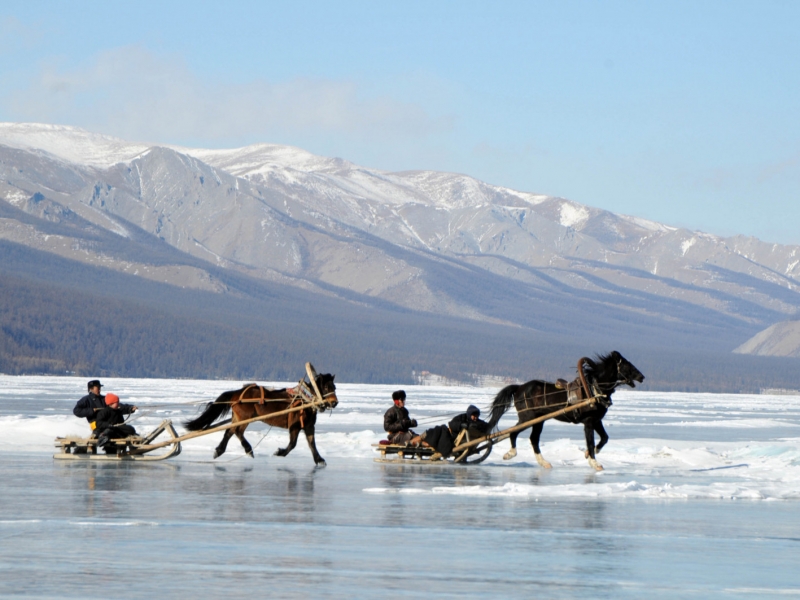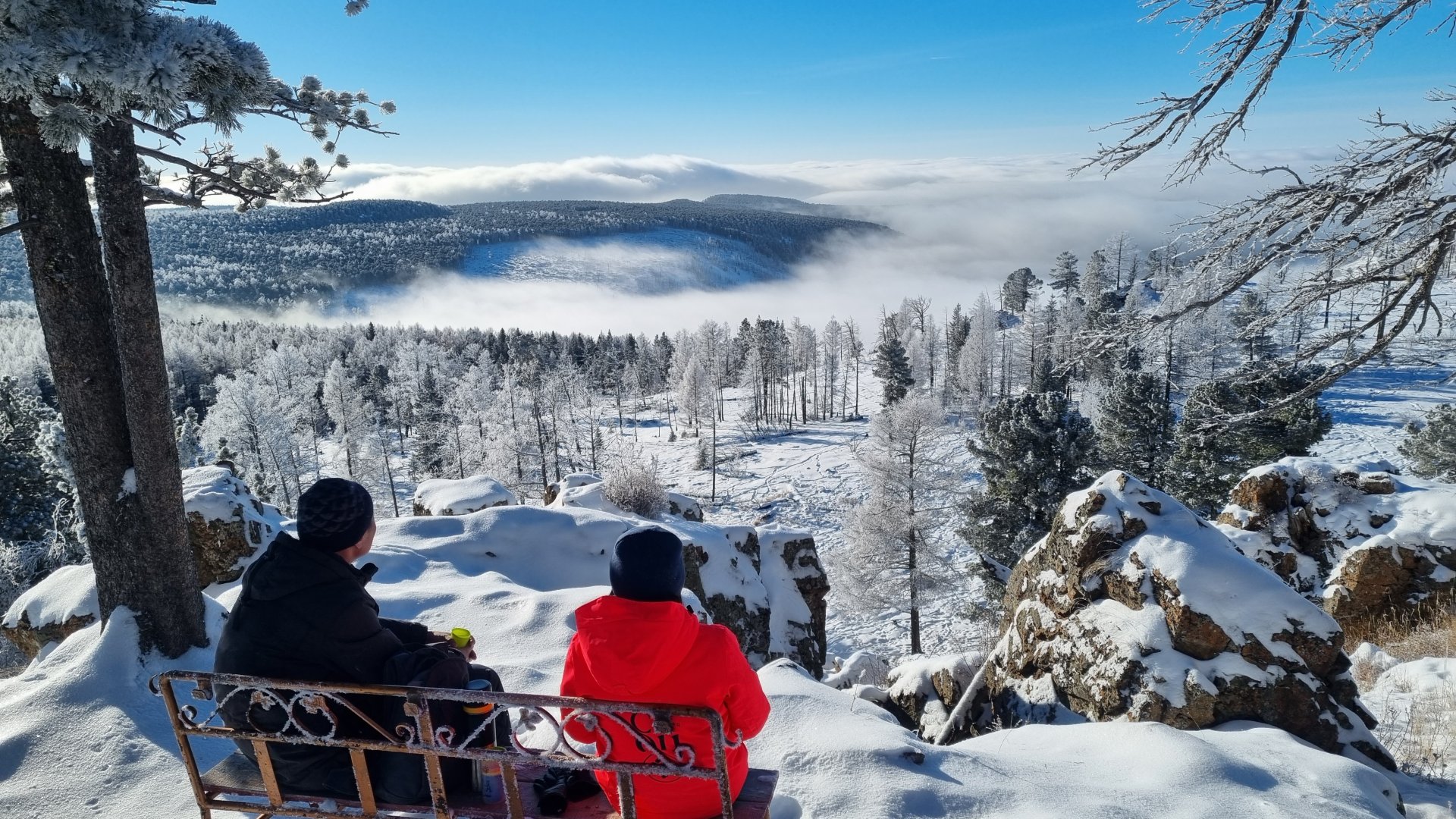
Winter
Mongolia has 4 beautiful seasons. Winter starts from November and ends in late february. Winter of mongolia continues about 4 months from November to February. However, there is still atmoshpere of winter weather until mid of the march with snowfall. The season changes nature into silver wonderland all covered with shiny white snow. However it is cold, all covered with snow, we still do the travelling mostly to destinations around UB, the Gobi which is warmer than other areas and unique festivals held in winter such as ice festival held up in the north, camel festival held in the south of mongolia. 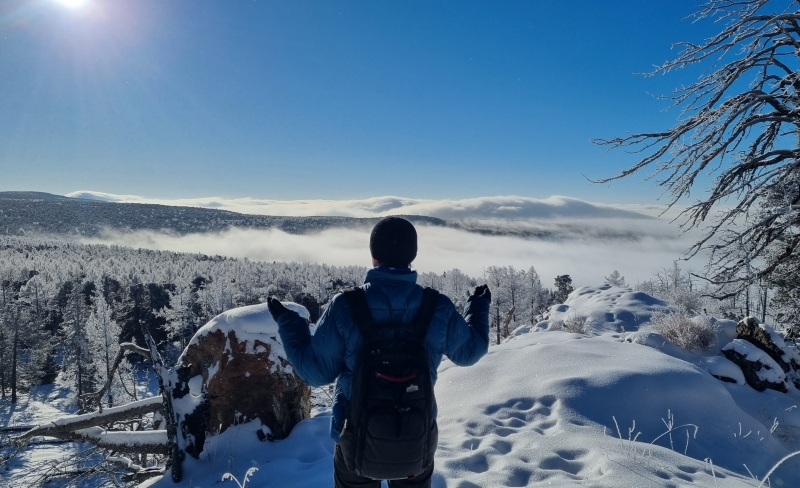
Climate of winter
Due to our location which is far from sea and high altitude, we have very continental climate. because of its high altitude and of its situation far from any sea. Our winter is very dry, cold but we have to say it is very beautiful. The average temperatures can range between - 20°C to -30°C. However, the weather can be warmer in southern part of mongolia and can reach -50°C in western part of mongolia. Mongolian winter is getting a bit warmer year by year in recent years perhaps due to the global warming. However, the winter of 2024 holds the record for the most snow in Mongolia since 1975, having 9.6 mm of snowfall or 1.6 times more than the long-term average. he winter of 2009-2010 was the last when Mongolia experienced the heaviest snowfall of 8.5 mm throughout the country, which was 1.4 times more than the long-term average accoring to the news of montsame agency. The sun shines for 257 days a year on average. That is why our country is called as "Country of the Blue Sky".
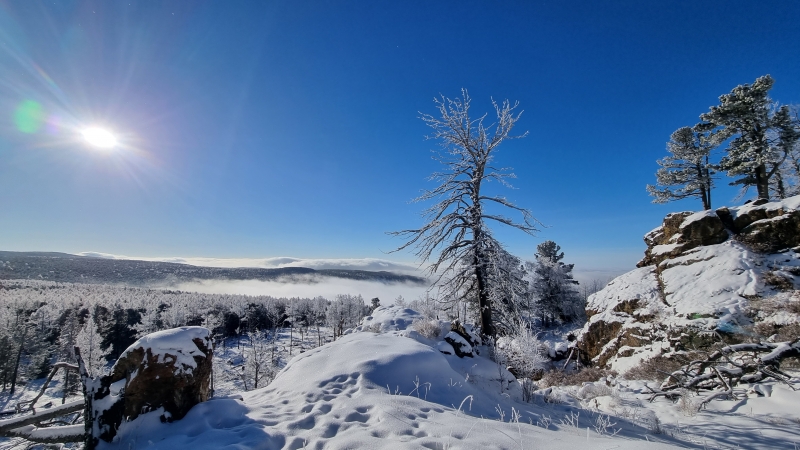
Nine Nines of Winter
Traditionally, our mongolians have been dividing the winter in to 9 periods each continues for 9 days from the 22nd of December when the Winter Solstice occurs.
The 1st Nine (Dec 22-Dec 30) What happens in the 1st nine? Distilled vodka named Nermel (traditional mongolian vodka made of milk) will be frozen
The 2nd Nine (Dec 31-Jan 8) What happens in the 2nd nine? Strong vodka named Khorz ( twice distilled mongolian traditional vodka made of milk) will be frozen
The 3rd Nine (Jan 9-Jan 17) What happens in the 3rd nine? Horn of the 3 years old entire ox will be frozen til broken
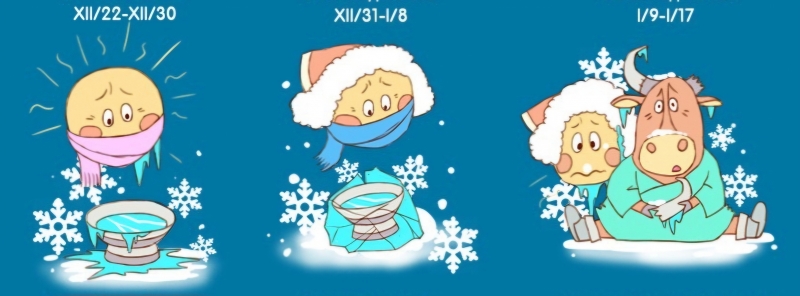
The 4th Nine (Jan 18-Jan 26) What happens in the 4th nine? Horn of the 4 years old ox will be frozen til broken
The 5th Nine (Jan 27-Feb 04) What happens in the 5th nine? The rice left outisde will no longer be frozen
The 6th Nine (Feb 04- Feb 13) What happens in the 6th nine? Earth roads will be visible as the snow starts to melt
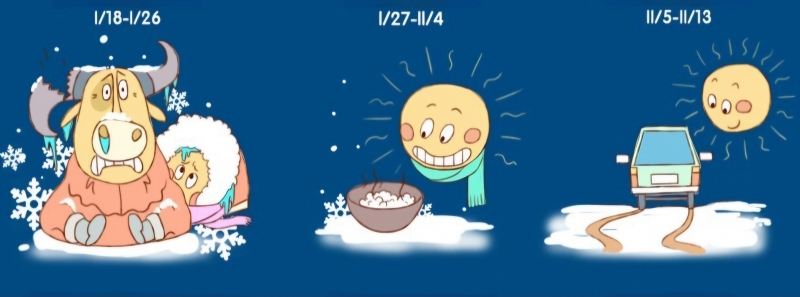
The 7th Nine (Feb 14-Feb 22) What happens in the 7th nine?Top of the hills will appear after the snow covered melts
The 8th Nine (Feb 23-March 03) What happens in the 8th nine? Earth roads get muddy everywhere as sun comes closer
The 9th Nine (March 04-March 12) What happens in the 9th nine? Finally the winter will be finished and spring is in the air

Tsagaan Sar, Lunar New Year
Tsagaan sar is one of the biggest traditional holidays of Mongolia. The holiday is celebrated widely by everyone in whole country. However, It is the most joyous holiday for the nomadic herders because it marks that spring has come after long and harsh winter where hundreds of their animals can freeze to death. The White Moon festival is celebrated on the first through third days of the first lunar month. Usually, the festival is celebrated between late of January and end of February. The holiday continues for 3 days and every mongolians visit their elders to greet and ask how they are.The meaning of the holiday is not only welcoming the spring, but also show our respect for our elders.
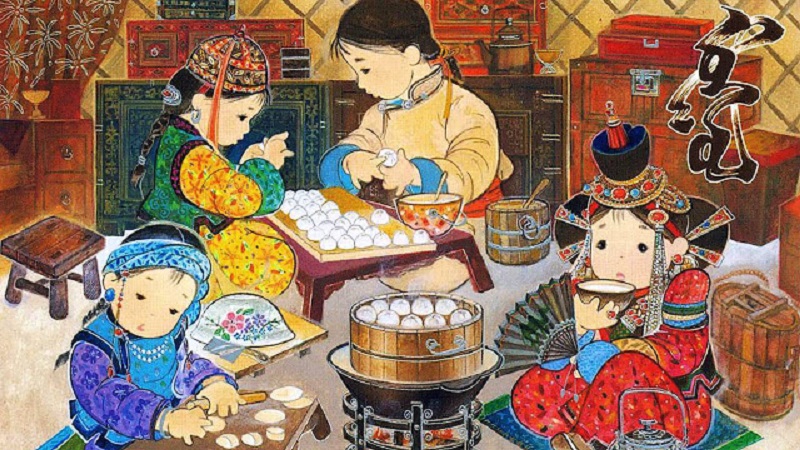
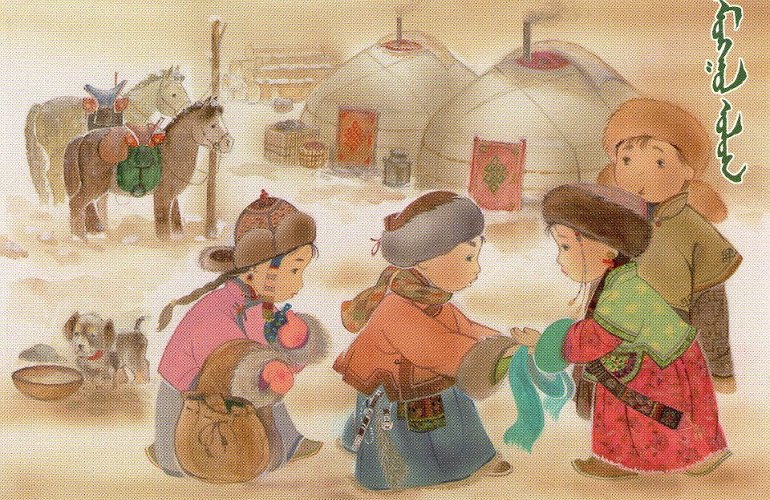
Ice Festival in Khusvgul
If you want to experience one of the coldest, but still mild winter on earth or wanted to explore a mystery of how nomads survive within temperature as low as -30 degree or tried to ride Mongolian horses and horse sleigh in the snow covered vast white steppe or skated on frozen fresh water lake? If so, your wish may come true in Mongolia during the Ice festival.
The ice festival, held annually at Khuvsgul lake-the fresh water lake, khatgal village of Khuvsgul province, is a famous celebration among locals and visitors organized by local community and government. This festival has been held annually at the lake as one of the biggest events to promote the winter tourism in Mongolia. The highlights of the “Ice festival” are the nature around, culture of reindeer herders, Shaman rituals, competition of horse sleighs and skating, ice ankle bone shooting game. At the festival, there are great opportunities to take part in optional trips of dog sledding, horse sleighing, horse riding, visiting reindeers and nomad families as well.
.jpg)
